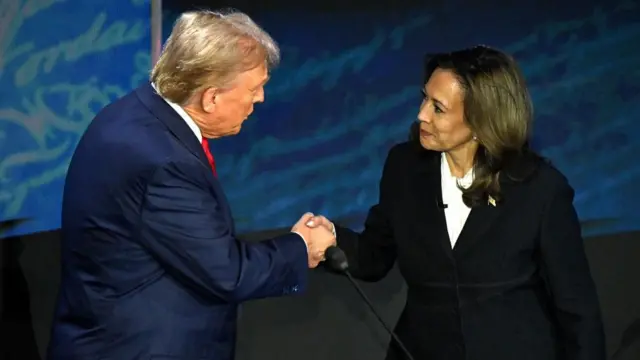As Bitcoin continues to grow in influence and adoption worldwide, it is becoming increasingly evident that the future of digital currencies is not just in the hands of tech companies, miners, or financial institutions—but also in the political sphere. The recent announcement of the first European presidential candidate entering the race for Bitcoin adoption has sparked significant interest and debate. This candidate is calling for the creation of a national strategic reserve of Bitcoin, an idea that could reshape the financial landscape not only in Europe but globally.
This article delves into the significance of this historic development, exploring the candidate’s proposal, the implications for the future of Bitcoin adoption in national economies, and the broader geopolitical context in which this move is taking place.
The Candidate and Their Vision
The candidate in question, [Name], has emerged as the first European political figure to propose that a country should begin building a national strategic reserve of Bitcoin. This move is part of their larger presidential campaign, where they are advocating for the adoption of Bitcoin as a national currency reserve asset. Their vision is to ensure that the country is prepared for the future of finance by embracing decentralized digital currencies, which they believe will play a central role in the global economy moving forward.
Bitcoin, the world’s first and most well-known cryptocurrency, has always been seen as a speculative asset, a store of value, or a hedge against inflation. However, as its acceptance continues to grow, many are beginning to see Bitcoin as an integral part of the future global financial system. By introducing the idea of a national Bitcoin reserve, [Name] is positioning themselves as a forward-thinking leader who recognizes the potential of digital currencies to transform economic systems.
The Call for a National Strategic Reserve
The proposal to create a national strategic reserve of Bitcoin is a bold one, particularly in Europe, where traditional banking systems and the euro have long been dominant. A strategic reserve is typically a government-held stockpile of essential resources—such as oil, gold, or foreign currency—that can be tapped in times of crisis or to ensure the country’s economic stability. For [Name], Bitcoin represents the future of global finance, and establishing a strategic reserve would ensure the country’s economic security in the digital age.
Key Aspects of the Proposal
- Building a Bitcoin Reserve: The candidate proposes that the country should begin accumulating Bitcoin at a steady pace, much like how nations have historically built up gold reserves. By doing so, the country would position itself as a leader in the Bitcoin space and as an early adopter in a world where more governments are exploring the use of digital currencies.
- Stabilizing the Economy: One of the main benefits of the strategic reserve would be its potential to stabilize the economy during times of financial turbulence. Bitcoin’s decentralized nature and limited supply make it a unique asset, offering protection against inflation and devaluation of fiat currencies. By holding a reserve, the country would have an alternative asset to rely on, potentially safeguarding against global economic shocks or currency devaluation.
- A Hedge Against Fiat Currency Risks: In many countries, the value of national currencies can be subject to fluctuations due to government policies, inflation, or geopolitical events. Bitcoin, with its fixed supply and decentralized network, offers an opportunity to hedge against the risks of fiat currency instability. By acquiring Bitcoin and holding it as a reserve, the government could mitigate some of the risks associated with relying solely on traditional fiat currencies.
- Encouraging National Adoption: A Bitcoin reserve could serve as a model for encouraging broader adoption of Bitcoin within the country. If the government takes the lead by investing in Bitcoin, it would send a strong signal to businesses, financial institutions, and citizens about the legitimacy and potential of the digital currency. This could encourage further investment, innovation, and usage of Bitcoin in everyday transactions.
Bitcoin’s Global Impact and Geopolitical Context
The call for a national Bitcoin reserve by a presidential candidate is not happening in a vacuum. Over the past few years, Bitcoin and other cryptocurrencies have increasingly entered the global stage as more governments and institutions recognize their potential. The idea of building a national Bitcoin reserve is reflective of the larger trend of countries beginning to explore digital currencies, including Central Bank Digital Currencies (CBDCs).
Global Bitcoin Adoption Trends
Countries around the world are beginning to acknowledge the importance of Bitcoin and other digital assets, albeit with varying degrees of enthusiasm. In Latin America, countries like El Salvador have already made Bitcoin legal tender, while others, such as Brazil and Argentina, have explored various avenues for integrating Bitcoin into their economies.
In Africa, Bitcoin is often viewed as a way to bypass the inefficiencies and volatility of traditional banking systems, with the cryptocurrency playing an increasing role in cross-border remittances and savings. Meanwhile, in Asia, China has led the charge with blockchain technology and digital currency innovation, while other nations like Japan and South Korea have made strides in adopting cryptocurrencies.
In Europe, however, Bitcoin’s role in the economy remains more ambiguous. While some countries, such as Switzerland, have been progressive in fostering a favorable regulatory environment for cryptocurrencies, others, like Germany and France, have been more cautious, implementing regulations that both encourage innovation and limit risk. The proposal of a presidential candidate to create a national Bitcoin reserve represents a major shift in this landscape, positioning the country as a potential trailblazer in the cryptocurrency adoption race.
Geopolitical Implications of National Bitcoin Reserves
The concept of national Bitcoin reserves could have profound geopolitical consequences. If more countries were to adopt the idea, it could lead to the rise of Bitcoin as a global reserve currency, challenging the dominance of traditional fiat currencies like the US dollar. This would have major implications for international trade, global economic policy, and financial power dynamics.
Countries that adopt Bitcoin reserves early could position themselves as leaders in the digital economy, reaping the benefits of increased financial stability, enhanced economic sovereignty, and global influence. On the other hand, nations that fail to adapt to the digital currency revolution may find themselves at a disadvantage, particularly if they continue to rely on fiat currencies that are vulnerable to inflation and external economic pressures.
Challenges and Considerations
While the proposal for a national Bitcoin reserve is exciting, it is not without its challenges and potential drawbacks. Some of the key considerations include:
- Volatility: One of the main criticisms of Bitcoin is its price volatility. While Bitcoin has experienced significant growth in recent years, its value can fluctuate dramatically. A national Bitcoin reserve would need to account for this volatility and develop mechanisms to manage the risks associated with sudden price swings.
- Regulatory Challenges: Governments around the world are still grappling with how to regulate Bitcoin and other cryptocurrencies. Establishing a national reserve would require a robust regulatory framework to ensure the secure storage, management, and use of Bitcoin. This could involve creating new laws or working within existing regulatory systems.
- Public Perception: While Bitcoin adoption is growing, it is still viewed with skepticism by many. For a national Bitcoin reserve to be effective, it would require public support and a clear understanding of the benefits of digital currency. The government would need to invest in education and outreach to ensure that citizens are on board with the initiative.
- Security Concerns: As with any digital asset, security is a major concern when managing Bitcoin reserves. The country would need to invest in state-of-the-art cybersecurity infrastructure to protect against hacking, theft, or loss of the digital assets.
Conclusion
The announcement of the first European presidential candidate calling for the establishment of a national Bitcoin reserve is a watershed moment in the evolving story of cryptocurrency. It represents a bold step forward in the race for Bitcoin adoption and highlights the growing importance of digital currencies in shaping the future of global finance. By advocating for a Bitcoin reserve, the candidate is positioning their country to be a leader in the digital economy, prepared for the challenges and opportunities that lie ahead.
As other countries watch closely, the global race for Bitcoin is intensifying. The strategic move of building a national Bitcoin reserve could pave the way for a new era of financial sovereignty, economic stability, and international influence. However, it will require careful planning, regulation, and security to ensure that Bitcoin can be integrated successfully into the national financial system. As the world shifts toward a more decentralized financial future, the question remains: which countries will be the first to adopt Bitcoin as a cornerstone of their economic strategy?



